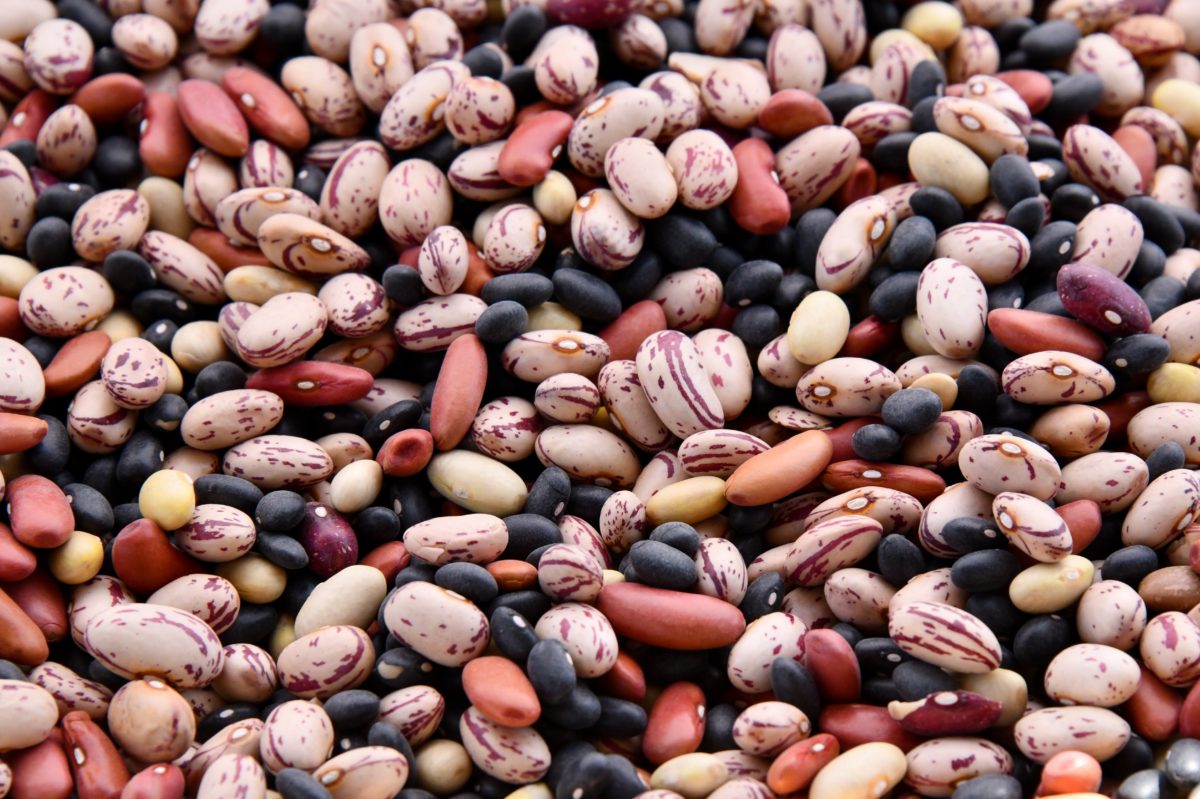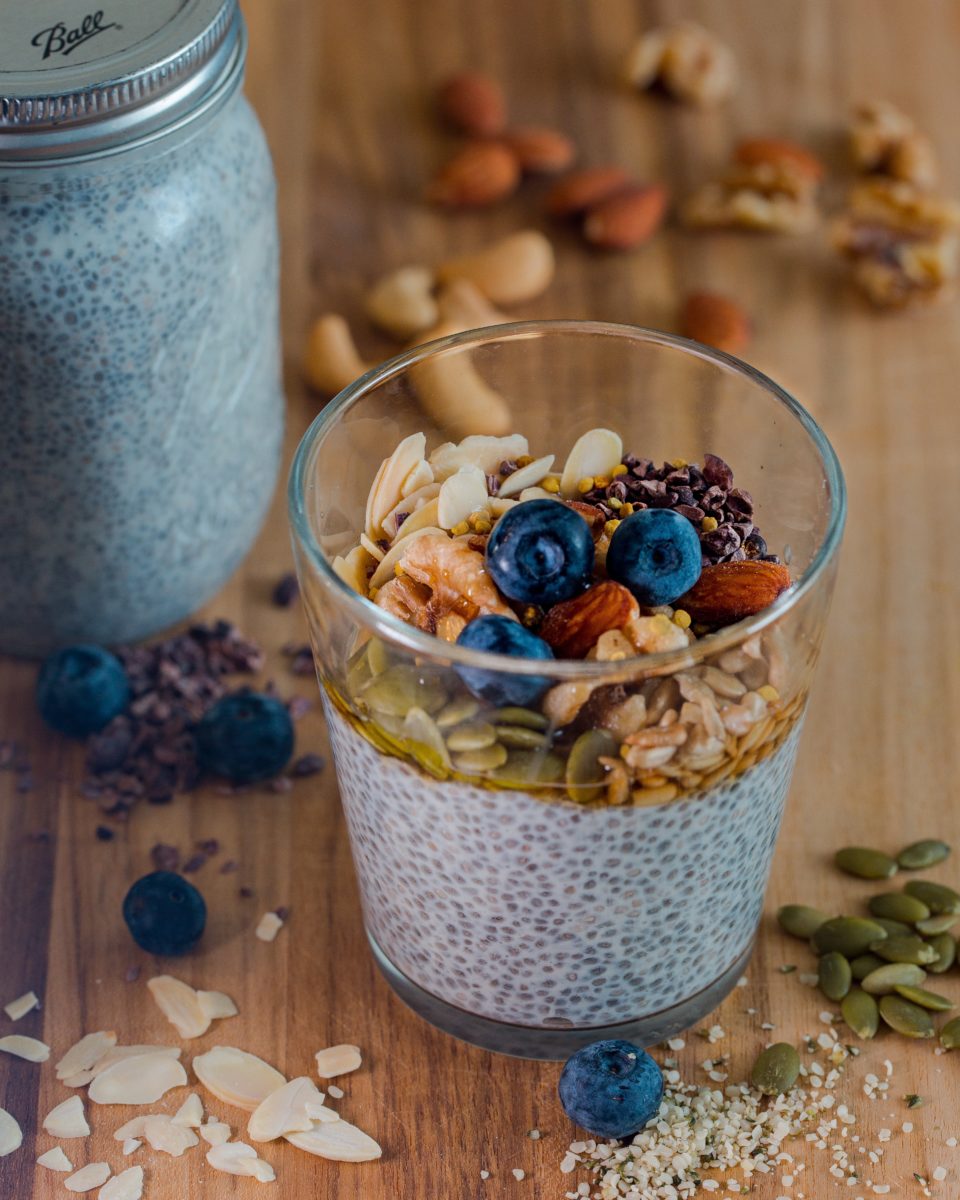Going with your gut helps brain function
Leonard Ong, Assistant Research Bioscientist
The foods we consume have a wide range of physiological effects. We can probably all relate to feeling happy after eating chocolate as it boosts your blood sugar, insulin levels and increases endorphins, an effect normally understood by the body as a temporary happiness.
While we would like to “turn off” our brains from time to time, it is always on and working hard for you. As the most important organ in your body, taking care of your thoughts, movement, senses and all bodily functions, it is important to understand that the food you eat, or the “fuel” for your body and brain directly affects the structure and function of your brain, and ultimately, your mood. Treats once in a while are great, but how does your daily food intake affect the brain?
To understand this, we explored parts that involved our functionality, development, mood and energy.

Essential fatty acid
Fatty acids are one of the key molecules for maintaining our brain integrity, and the ability to perform. Two fatty acids, in particular, alpha-linolenic acid (an omega-3 fatty acid) and linoleic acid (an omega-6 fatty acid), are known to be necessary to include in your diet, because unlike other fatty acids, they cannot be synthesised by our body.
Found in foods such as nuts, seeds or fatty fish, these acids are involved in the maintenance of cell membranes and are precursors for hormones.
These fatty acids are known to reduce oxidant stress1, provide protection against stress2, cognitive aging and depression3. Aside from being beneficial for brain health, they also help with the treatment of certain neurological disorders and will even improve mental and physical performances4.
In this sense, it is important for us to note the type of fats we consume, not indiscriminately cut all “fat(s)” out of our diet.

Sugar and proteins
Although the brain only weighs an average of 2% of the total body weight, it uses up to 20% of the energy in the body5. Keeping brain function at optimal levels requires a steady supply of blood glucose, as it is the primary source of energy of the brain.
An example of dietary choices affecting brain function is the “food coma” (postprandial somnolence) we occasionally get after a heavy meal. Foods with a high glycemic index (GI) tend to be more easily digested than those with low GI. As high GI foods are digested faster, the glucose release into the bloodstream peaks faster and the rate of insulin (a hormone released to induce storage of energy when there is high blood glucose) release also increases which produces a sharp drop in blood glucose. This sharp dip in the blood glucose leads to lethargy and sleepiness – the food coma. Whereas in meals consumed with low GI such as oats, grains and legumes, there is a steady rise in blood glucose, which promotes a gradual release of insulin.
Consumption of a meal with higher protein content has the ability to raise levels of adrenaline (also known as epinephrine), dopamine and noradrenaline (also known as norepinephrine, a hormone associated with flight or flight response) which increases the body’s alertness6. Amino acids are essential for making these signalling molecules. They’re important precursors for a whole lot of these specialised neurotransmitters. At the bottom of this article are a few diagrams and explanations as to how this chemical reaction happens in the body.
So, if you want to avoid falling into the food coma, consider substituting white rice with brown rice; consume a meal with higher protein content, or you can simply change to having some apples instead of a can of soda to finish the meal.

Gut microbiome
A wealth of different micro-organisms in your gut positively affects brain function. Millions of nerves and neurons run between the brain and gut, and the produced chemical messengers affect our brain. By changing the type of diet with Omega-3 fatty acids, fermented foods, polyphenol-rich foods, or type of probiotics in our gut, improvement of gut health can benefit the gut-brain axis.
For example, gut microbes are also able to produce short-chain fatty acids (SCFA) such as butyrate, propionate and acetate when digesting fibre7. These short-chain fatty acids are associated with signalling that leads to a reduction in appetite, which can be favourable for prevention of diet-induced obesity8.
It was found from a clinical study that patients suffering from major depressive disorder prescribed with probiotics supplements had relieved symptoms from stress, anxiety and depression9.

Micronutrients
When you do not have enough micronutrients in your food, your cognitive performances are affected, such as your ability to stay alert, to keep a clear mind and feel energetic.
Studies on supplementation of B vitamin complex and vitamin C were shown to improve ratings of stress, mental health and vigour and improved cognitive performance during intense mental processing10. Deficiency in vitamin D was also associated with low mood and worse cognitive performance in older adults11.
Trace amounts of iron, copper, zinc and sodium are necessary for brain development in the early stages of a child, but these micronutrients might sometimes be neglected. Studies on infants born iron-deficient showed a slower recognition of the mother’s voice at 2 months of age12. Micronutrients don’t just affect infants in the stages of development. They’re essential for a diverse range of function which affects us throughout all phases of life. Supplementation of multivitamin combination with calcium, magnesium, and zinc was studied amongst healthy young males, and it was shown to improve their ability to concentrate13.
These vitamins serve as co-factors in metabolic pathways, lots of them from fruits and vegetables also function as antioxidants which can protect our cells from free radicals14. Water-soluble vitamins like vitamin B complex, vitamin C, minerals such as magnesium and zinc do not have reserve stored in the body, therefore it is important to ensure adequate intake15. To prevent the lack of these nutrients, we can increase the range of our food choices, changing from the food we always eat to a different range of fruits, vegetables, seeds or nuts.

What can you do?
You may have seen a few times throughout this article, everything our brains need to function well is a little bit of this and little bit of that. A diverse diet, somewhat replicating our hunter-gather ancestors, is definitely recommended to keep your brain working at optimal levels.
Here are four things you can do today to eat for brain health:
- Take your probiotics regularly, kimchi, yoghurt, Sauerkraut or just something that suits your palate. Your gut bacteria love probiotics. Go with your gut feeling. Happy gut = happy mind = happy you.
- You’ll never know exactly what you’re missing in your body at all times. What you can do is to keep a balanced and diverse diet. Regularly consume fortified foods with micronutrients such as corn-soy blend, vegetable oil enriched with vitamin A or iodised salt.
- Increase your diversity in healthy food choices.
- Consume nutrient-dense foods such as salmon, nuts, seeds.
REFERENCES
- Mori TA, Puddey IB, Burke V, Croft KD, Dunstan DW, Rivera JH, et al. Effect of ω3 fatty acids on oxidative stress in humans: GC–MS measurement of urinary F2 -isoprostane excretion. Redox Rep [Internet]. 2000 Feb 1;5(1):45–6. Available from: https://doi.org/10.1179/rer.2000.5.1.45
- Bourre JM. Dietary omega-3 Fatty acids and psychiatry: mood, behaviour, stress, depression, dementia and aging. J Nutr Health Aging. 2005;9(1):31–8.
- Su K-P, Huang S-Y, Chiu C-C, Shen WW. Omega-3 fatty acids in major depressive disorder. A preliminary double-blind, placebo-controlled trial. Eur Neuropsychopharmacol. 2003 Aug;13(4):267–71.
- Di Pasquale MG. The essentials of essential fatty acids. J Diet Suppl. 2009;6(2):143–61.
- Mergenthaler P, Lindauer U, Dienel GA, Meisel A. Sugar for the brain: the role of glucose in physiological and pathological brain function. Trends Neurosci [Internet]. 2013/08/20. 2013 Oct;36(10):587–97. Available from: https://www.ncbi.nlm.nih.gov/pubmed/23968694
- Zeng Y-C, Li S-M, Xiong G-L, Su H-M, Wan J-C. Influences of protein to energy ratios in breakfast on mood, alertness and attention in the healthy undergraduate students. Health (Irvine Calif). 2011;
- Poeker SA, Geirnaert A, Berchtold L, Greppi A, Krych L, Steinert RE, et al. Understanding the prebiotic potential of different dietary fibers using an in vitro continuous adult fermentation model (PolyFermS). Sci Rep [Internet]. 2018 Mar 12;8(1):4318. Available from: https://www.ncbi.nlm.nih.gov/pubmed/29531228
- Lin H V, Frassetto A, Kowalik EJJ, Nawrocki AR, Lu MM, Kosinski JR, et al. Butyrate and propionate protect against diet-induced obesity and regulate gut hormones via free fatty acid receptor 3-independent mechanisms. PLoS One. 2012;7(4):e35240.
- Wallace CJK, Milev R. The effects of probiotics on depressive symptoms in humans: a systematic review. Ann Gen Psychiatry [Internet]. 2017 Feb 20;16:14. Available from: https://www.ncbi.nlm.nih.gov/pubmed/28239408
- Kennedy DO, Veasey R, Watson A, Dodd F, Jones E, Maggini S, et al. Effects of high-dose B vitamin complex with vitamin C and minerals on subjective mood and performance in healthy males. Psychopharmacology (Berl) [Internet]. 2010/05/08. 2010 Jul;211(1):55–68. Available from: https://www.ncbi.nlm.nih.gov/pubmed/20454891
- Wilkins CH, Sheline YI, Roe CM, Birge SJ, Morris JC. Vitamin D Deficiency Is Associated With Low Mood and Worse Cognitive Performance in Older Adults. Am J Geriatr Psychiatry [Internet]. 2006;14(12):1032–40. Available from: http://www.sciencedirect.com/science/article/pii/S1064748112608902
- Mai X, Xu L, Li M, Shao J, Zhao Z, deRegnier R-A, et al. Auditory recognition memory in 2-month-old infants as assessed by event-related potentials. Dev Neuropsychol [Internet]. 2012;37(5):400–14. Available from: https://www.ncbi.nlm.nih.gov/pubmed/22799760
- Carroll D, Ring C, Suter M, Willemsen G. The effects of an oral multivitamin combination with calcium, magnesium, and zinc on psychological well-being in healthy young male volunteers: a double-blind placebo-controlled trial. Psychopharmacology (Berl). 2000 Jun;150(2):220–5.
- Nimse SB, Pal D. Free radicals{,} natural antioxidants{,} and their reaction mechanisms. RSC Adv [Internet]. 2015;5(35):27986–8006. Available from: http://dx.doi.org/10.1039/C4RA13315C
- Huskisson E, Maggini S, Ruf M. The influence of micronutrients on cognitive function and performance. J Int Med Res. 2007;35(1):1–19.